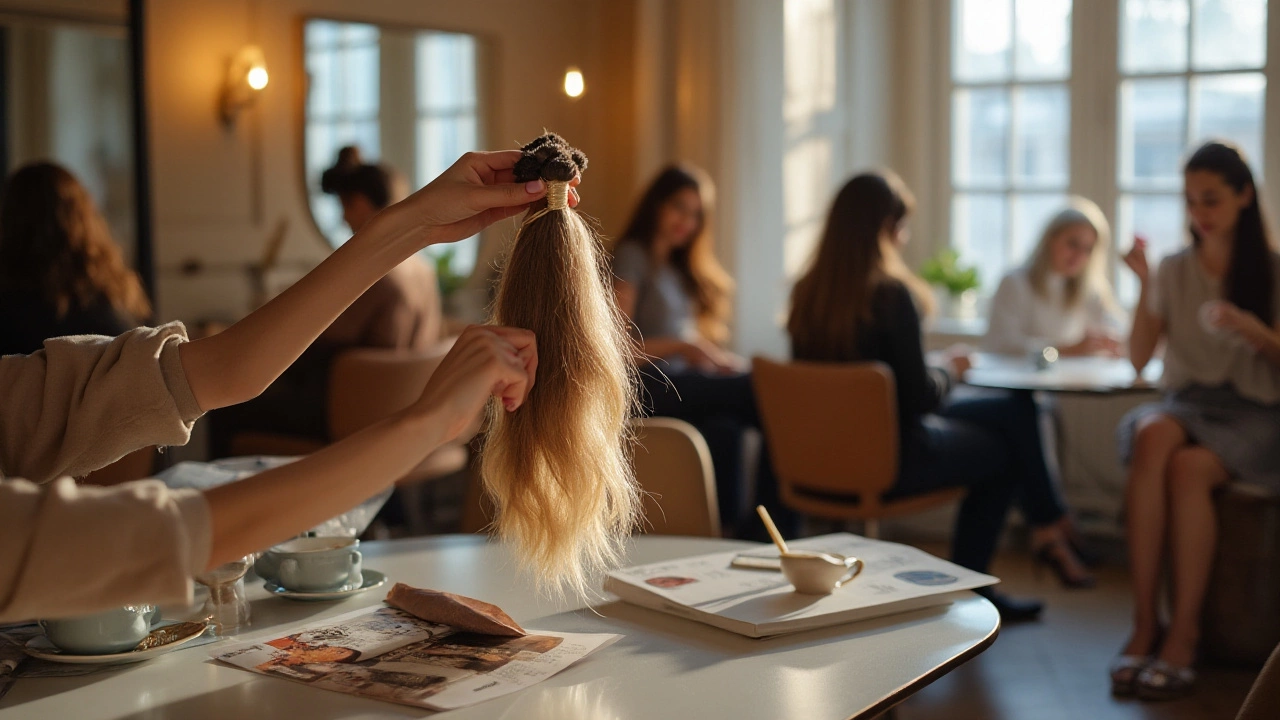Natural Hair Products: Simple Picks for Healthy, Strong Hair
When you look for hair care, the first question is usually “is it natural?” Skipping the chemistry jargon and focusing on what works can save you time and money. Below you’ll find straight‑forward advice on the ingredients to seek, the ones to avoid, and how to blend natural products into your daily routine.
What Makes a Hair Product ‘Natural’?
Most brands label a product as natural, but the term isn’t regulated. A good rule of thumb is to check the ingredient list. If the first three ingredients are plant‑derived oils, extracts or butters, you’re in safe territory. Look for names like argan oil, shea butter, coconut oil, jojoba, and aloe vera. These ingredients moisturise, seal in moisture and add shine without harsh chemicals.
Avoid anything that lists sulfates, parabens, silicones, or synthetic fragrances high up on the list. Sulfates strip natural oils, while silicones can build up and make hair feel heavy. If you see “fragrance” without a natural source, it’s likely a synthetic mix.
How to Build a Natural Hair Care Routine
Start with a gentle, sulfate‑free shampoo. A few drops of tea tree oil or a splash of apple cider vinegar can boost scalp health without adding harsh chemicals. Follow with a conditioner rich in natural moisturisers—look for shea butter, avocado oil or panthenol. For extra protection, apply a leave‑in serum made from argan oil or lightweight grapeseed oil. It will tame frizz and add a subtle shine.
If you like a weekly deep‑conditioner, mix a tablespoon of honey with equal parts coconut oil. Warm it for a minute, apply to wet hair, and cover with a shower cap for 20‑30 minutes. Rinse well, and you’ll notice softer, more manageable strands.
Don’t forget the scalp. A simple scalp scrub of brown sugar and olive oil, used once a month, clears dead skin and encourages healthy growth. Massage gently—this also pushes blood flow to the follicles.
When you shop, prioritize brands that are transparent about sourcing. Companies that provide batch‑by‑batch testing or use certified organic ingredients are usually safer. Small, UK‑based makers often have clearer labeling than big retail lines.
Finally, listen to your hair. If a product feels heavy or causes itchiness, swap it out. Natural hair care isn’t a one‑size‑fits‑all; it’s about finding the right balance for your texture, porosity and lifestyle.
With these basics, you can cut down on confusing marketing claims and focus on what truly nourishes your hair. The goal is simple: healthy, strong strands that look and feel great without a cocktail of synthetic chemicals.
The Truth Behind 100% Human Hair Products
Have you ever wondered what '100% human hair' really means on your hair products? This insightful article delves into the truth behind the label, exploring the sourcing, manufacturing, and ethical considerations. Discover tips for choosing the best quality human hair products for your needs, learn about the importance of proper maintenance, and become informed about the industry’s hidden challenges. Equip yourself with the knowledge to make smart hair care decisions and enhance your beauty regimen.
